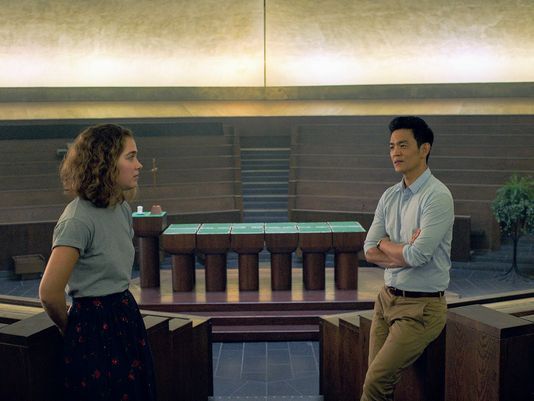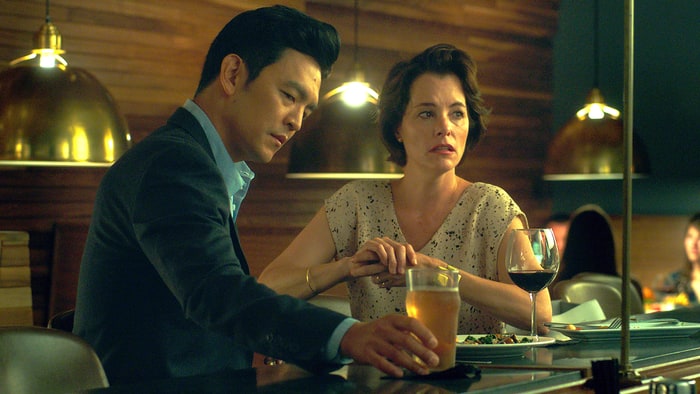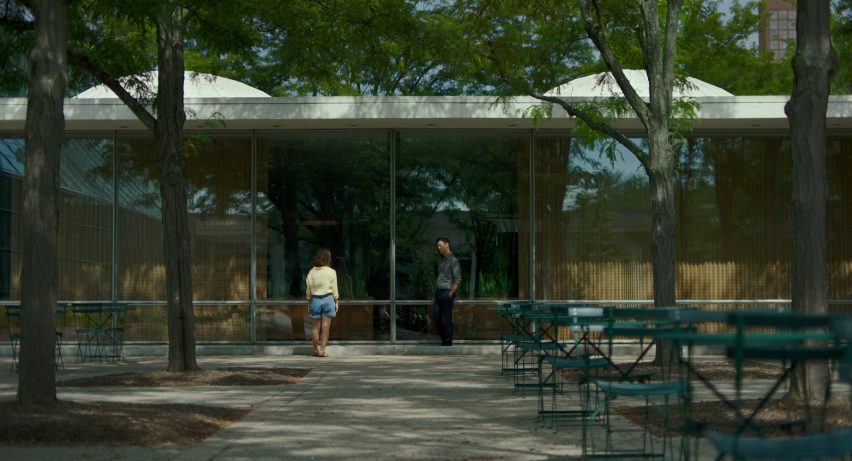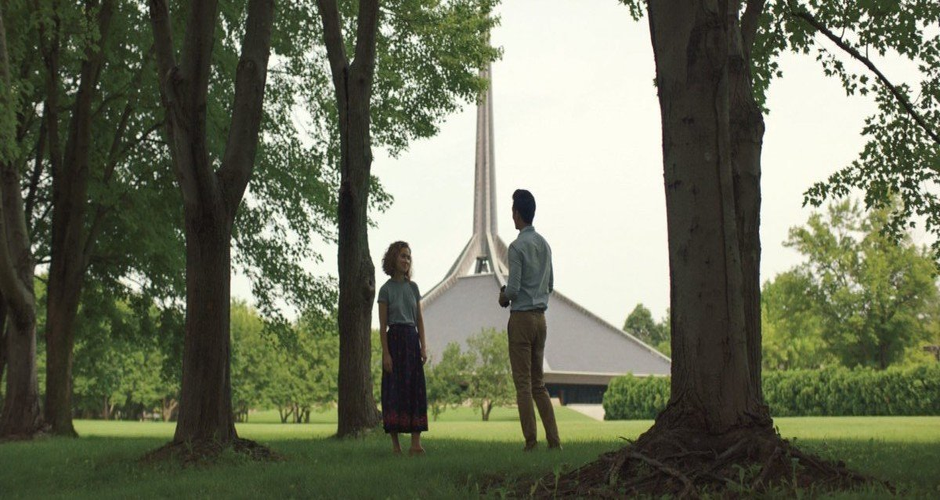A few years ago I was going through a rough time. I was feeling lost and overwhelmed. A friend offered me a meditation technique to help center myself whenever that pit in my stomach threatened to cripple me completely. I’d never thought much of meditation but was willing to try anything. I was told to take a very careful, measured look at my surroundings. Let’s say I was in an office. I would take a deep breath and calmly take in every object in the room. There’s the computer, there’s the door, there’s the wires connecting the computer to the wall, there’s the mug on my desk full of pens and pencils, there’s the keyboard, there’s the desk, there’s the papers I haven’t filed yet, there’s the phone. You get the idea. After taking everything in, I would then focus on the spaces between the objects. We are surrounded by so many things all the time, be they man made or natural, that it’s difficult to notice just how much space there still is around us. Sounds a little cheesy, I know. But try it some time. You’ll be shocked by how much empty air there is for you to breathe in. And if you’re like me, you’ll be comforted by it.
I thought of this while watching Columbus for the first time. Here is a movie about two lost people who struggle to find meaning in the spaces around them. Jin (John Cho) arrives in the town of Columbus, Indiana because his father, a famous architect, has fallen into a coma. To say that his relationship with his father is troubled is a bit of an understatement. Jin harbors a great deal of resentment for a man who always cared more about buildings than about his own flesh and blood child. As a result, Jin has little more than contempt for his father’s work. Casey (Haley Lu Richardson) has lived in Columbus her whole life and is deeply drawn to it’s unique architecture. She should be in her sophomore year of college but has elected to stay home to take care of her mother. She works at the library and is encouraged by friends to go to school or move on to bigger and better things. She tells them all she needs to stay and look after her mom. She’s rehearsing to be one of the town’s many architecture tour guides. She sees Jin at the hospital and, being an admirer of his father, strikes up a conversation with him. What follows is an hour and a half of Richardson and Cho walking around Columbus, looking at buildings, and talking about their lives. That’s it. That’s the movie.
Or perhaps I should say that’s the surface of the movie. A synopsis that no doubt makes it sound like Garden State by way of Lost in Translation. But Columbus is better, wiser, and deeper than both films (especially Garden State). This is a film that lives in the empty spaces. The writer and director is a man named Kogonada, a former video essayist turned filmmaker. He has a great love for exquisite framing and a a keen eye for detail. He never wastes a shot. In fact, the camera hardly ever moves. Most shots are stationary, observing every element in the frame and allowing the characters to wade through them. When the camera does move, it’s for a clear purpose. The first time it happens is when Jin and Casey meet. And it’s not a showy event. The camera simply follows them as they talk, casually suggesting that their meeting is the first step in both of them moving forward with their lives.

In the hands of a lesser filmmaker, their relationship would be cringe-worthy. After all, it’s such a cliche: an older man arrives in a place that feels alien to him and finds hope by starting a romance with a young woman. We scoff at movies that present crap like that as some sort of profound catharsis. And we should. Columbus isn’t that movie though. Jin and Casey form a connection, yes. They are forever changed by their encounters, yes. There is some sort of charge between them, yes. But neither character is ever exploited for the sake of the other. And they aren’t drawn to each other for some trite romantic reason. For Jin, Casey is someone who gives him insight into the world his father lived in, which he completely rejected. For Casey, Jin is an outsider she can share her insights with. An outsider who doesn’t judge, doesn’t live in her world, and is more than a little eager to gain some sort of appreciation for the work his father was so obsessed with. These two are drawn to each other not because of a desire for romance but because of a deep yearning in both of them for some sort of anchor. The space around them is big and they need to grab on to something.
There are two key characters that further elevate the material. Casey’s mother (Michelle Forbes) is presented as a good, hard-working person with a lot of problems. Casey makes dinner for her, makes sure she gets to work on time, and spends her evenings checking up on her for reasons the movie eventually make clear. She doesn’t want her daughter to stay in Columbus forever but she also has no idea what she would do without her. Jin must contend with his father’s longtime assistant (Parker Posey), who worships the man Jin despises. She calls Jin out when he brings up Casey, instantly questioning his intentions and reminding him that he had a crush on her so many years ago. That scene and a scene very late in the film between Casey and her mother (which I cannot spoil) are so steeped in shared history, so fully lived in, and so well constructed that it’s damn near impossible to watch them and not applaud.

The central arc of both main characters is clear from the beginning. One needs to stay and one needs to go. And in a simpler film, both would make their choice while coming to terms with their own history and moving one in some big, grand, beautiful way that wraps up everything in a nice, neat bow. But the fact of the matter is, life isn’t like that. You can be angry at your parents forever and never reconcile with that fact. You can make a hard choice to change your life, the right choice, and still be utterly torn up about it. At one point, Jin admits that he hopes his father dies. A more average film would have him realize how awful that is to say and make him change his mind. Columbus doesn’t bother with that. He feels this and he knows it’s ugly but if he’s ever going to actually deal with his father’s role in his life, then he has to acknowledge that love and hate are often opposite sides of the same coin. Same with Casey. Neither character gets to “come to terms” with their parents or “move on” from the past. The past is always going to be there and sure, they can and will move forward but not without going through incredible emotional turmoil.
The ways the film acknowledges these truths are ultimately what make it so uplifting. So many movies teach us to expect clear lessons, obvious messages, and straight paths to enlightenment. It’s the rare movie that says, “Hey, life is very, very hard and you need to be aware of that. You don’t need to reconcile with that fact. You don’t need to come to terms with it. And you don’t need to be okay with it. But you need to keep moving forward. Especially when it’s hard. It won’t feel great and you’re probably not going to get a catharsis. But you can try to look for one. You can keep searching. And maybe that search is all you need.”

When I’m looking at the spaces between objects, I often feel like I’m on that search. I’m looking for a sense of peace and if I can even find it for 30 seconds, that’s a win. But that doesn’t mean I’m not going to struggle. It doesn’t mean I’m not going to find despair lurking right around the corner. And it doesn’t mean that I’m going to find that peace permanently. But I’m happy to look for it. So are Casey and Jin. The most marvelous scene in Columbus occurs early on. Casey takes Jin to a bank, the first modernist bank in America, as she describes it, and starts explaining the building to him like an automaton. “Wait”, he says, “Tell me what you like about this building.” She thinks for a second, the camera pulls back, takes her in from the window, and silently observes as her whole body language changes. We don’t hear a word she says about the building but her passion shines through. In that wonderful moment, Casey is living in the space between things and we get to be right there with her.


GET CHOMPED